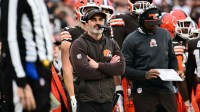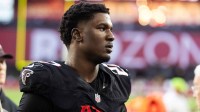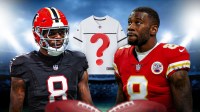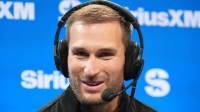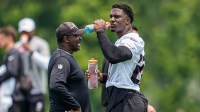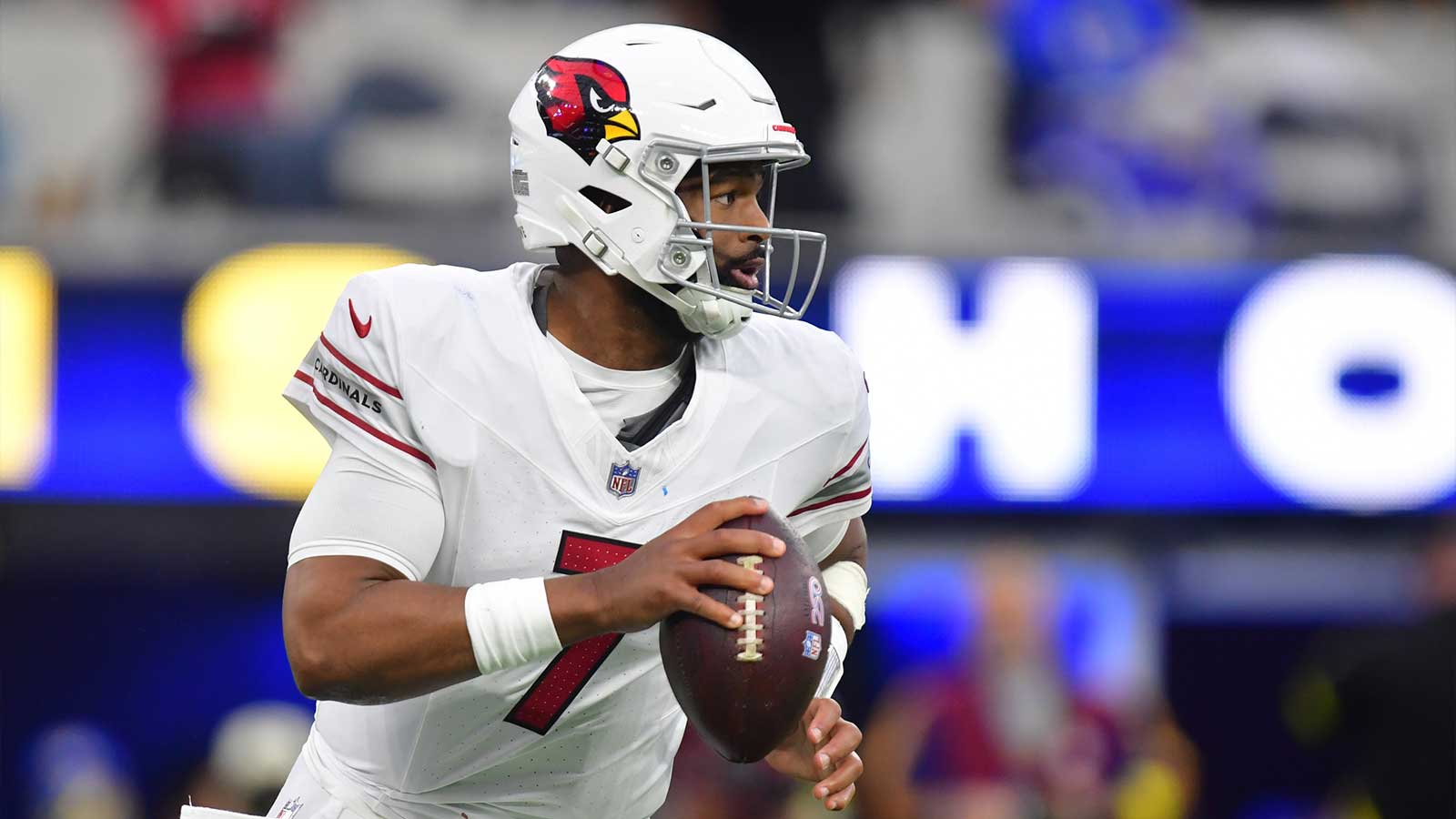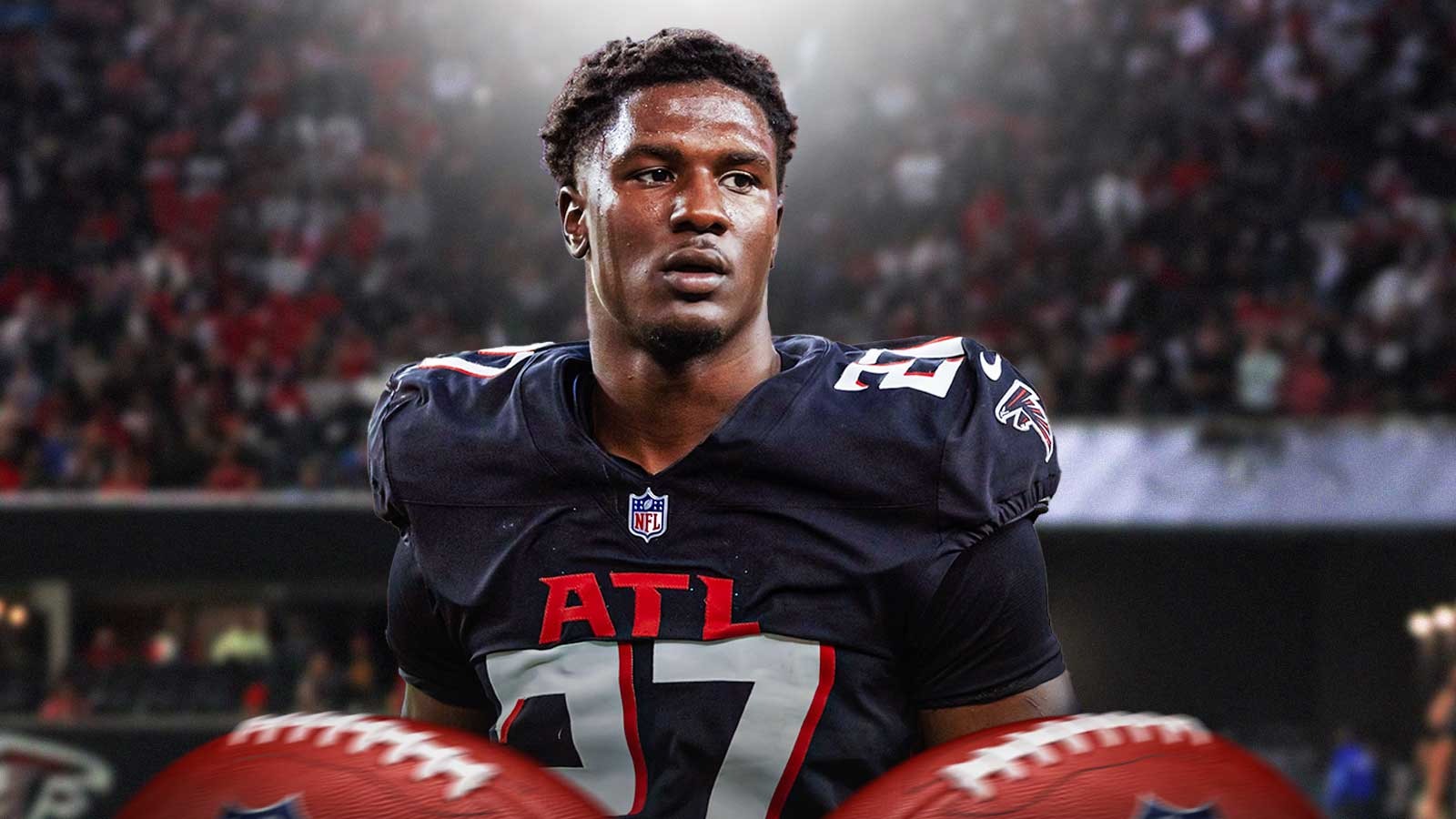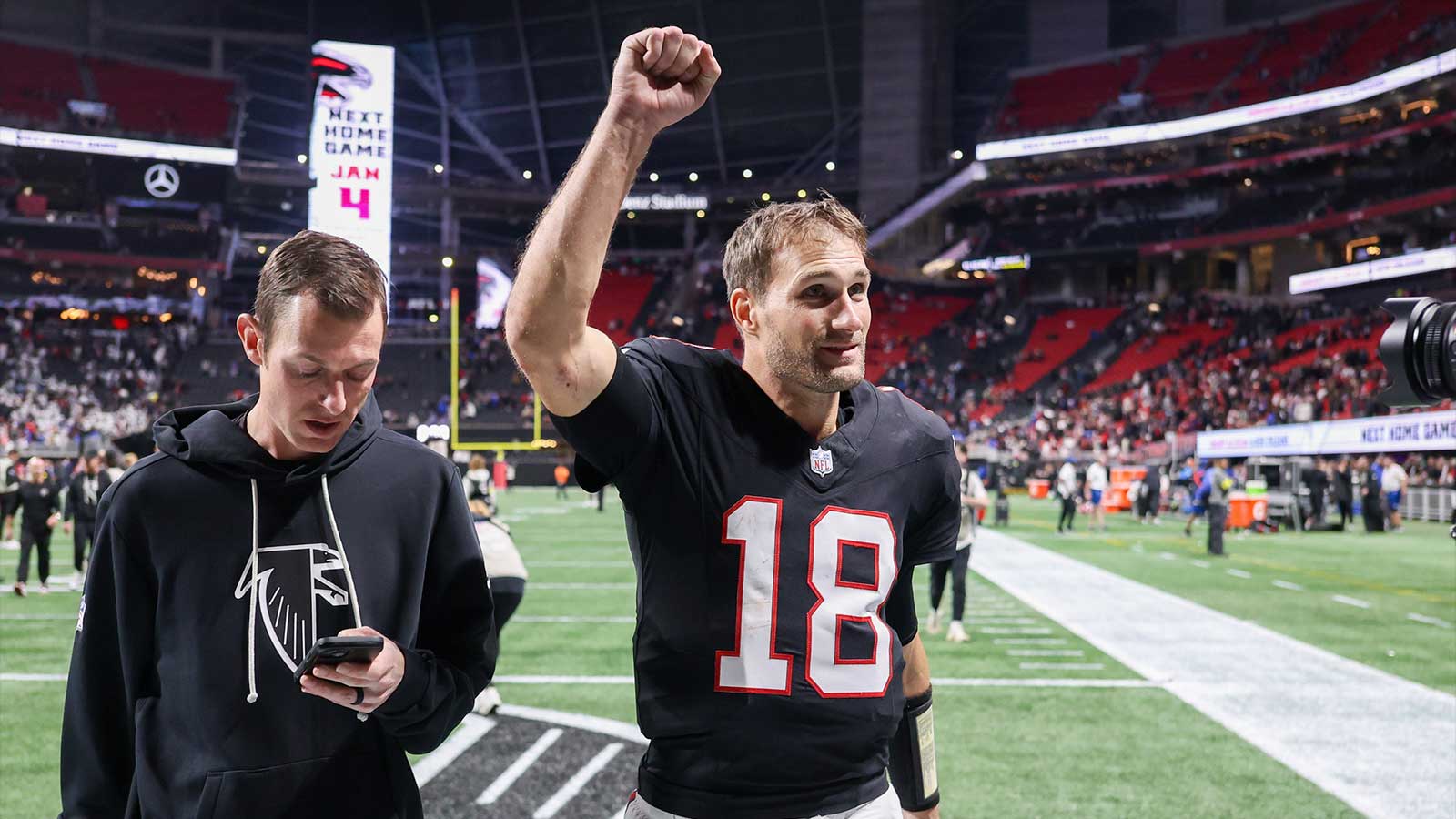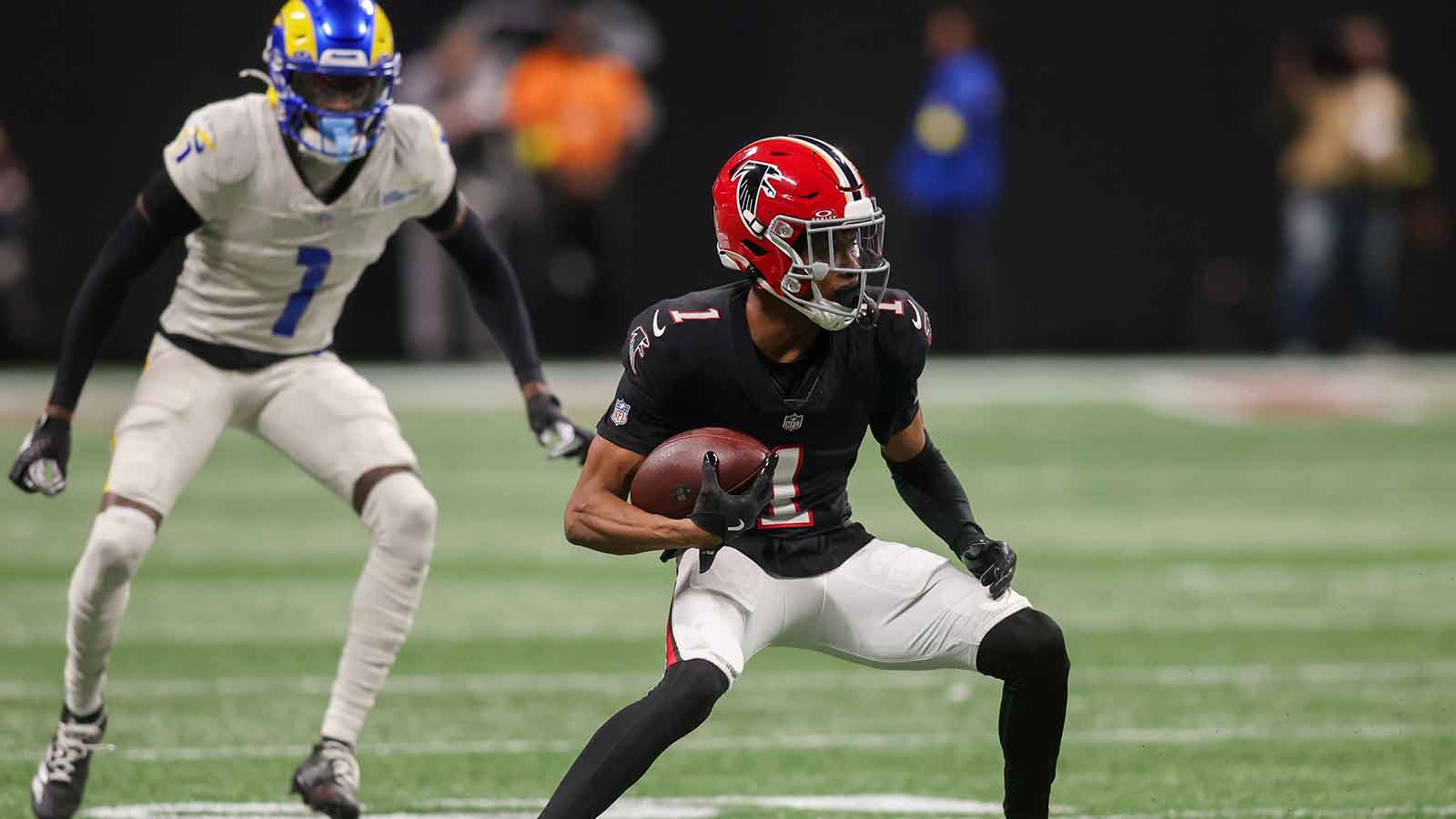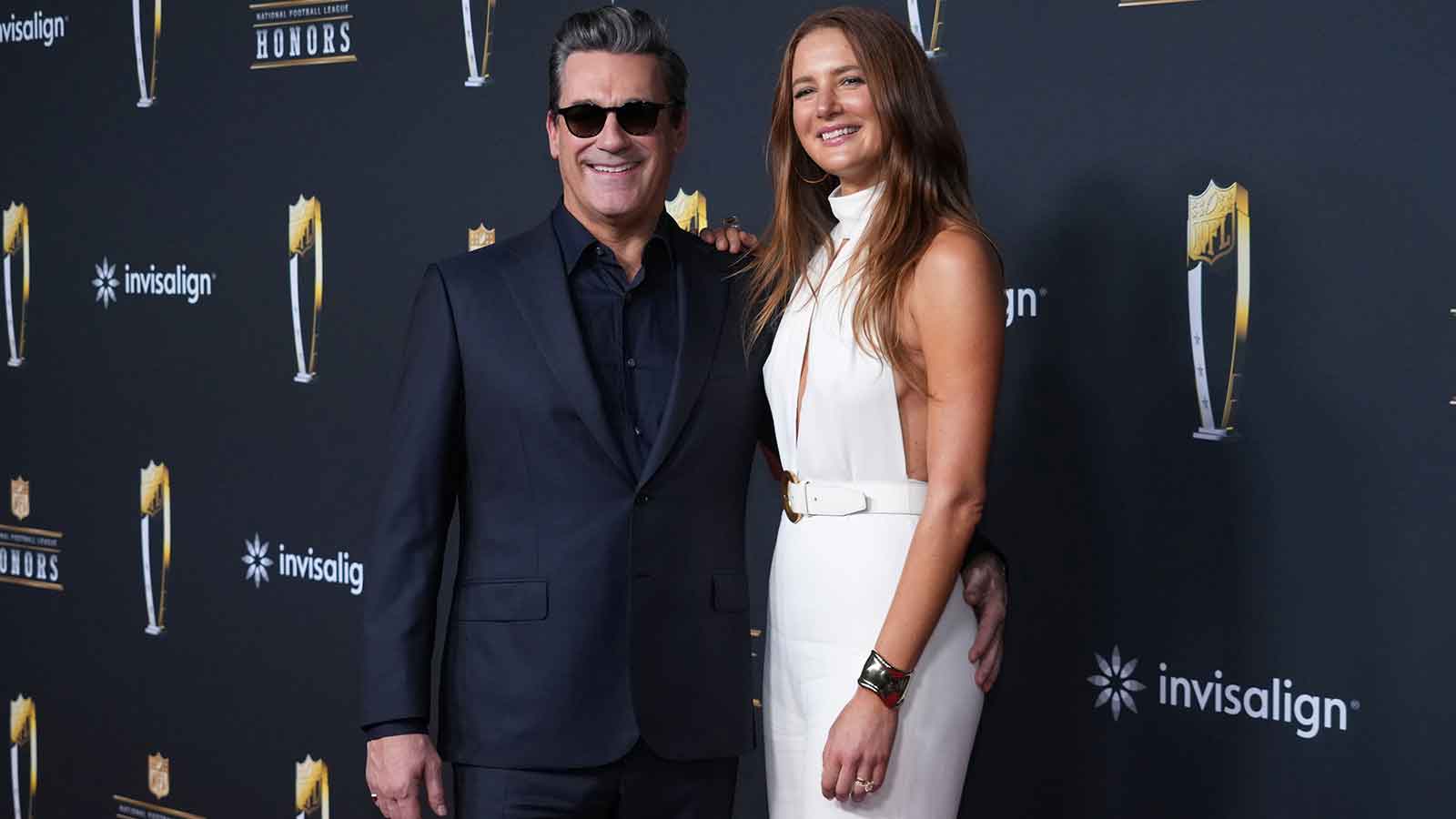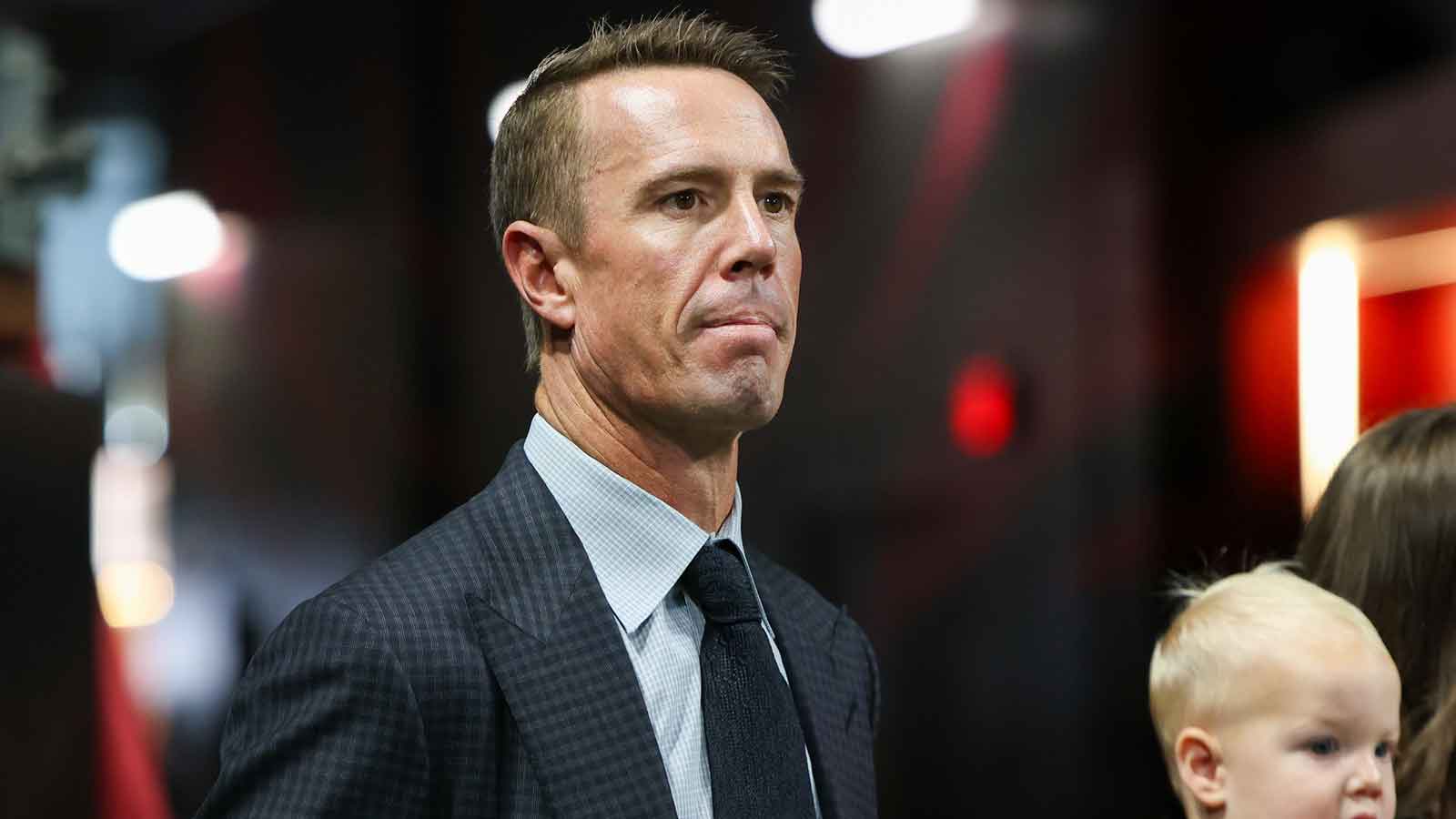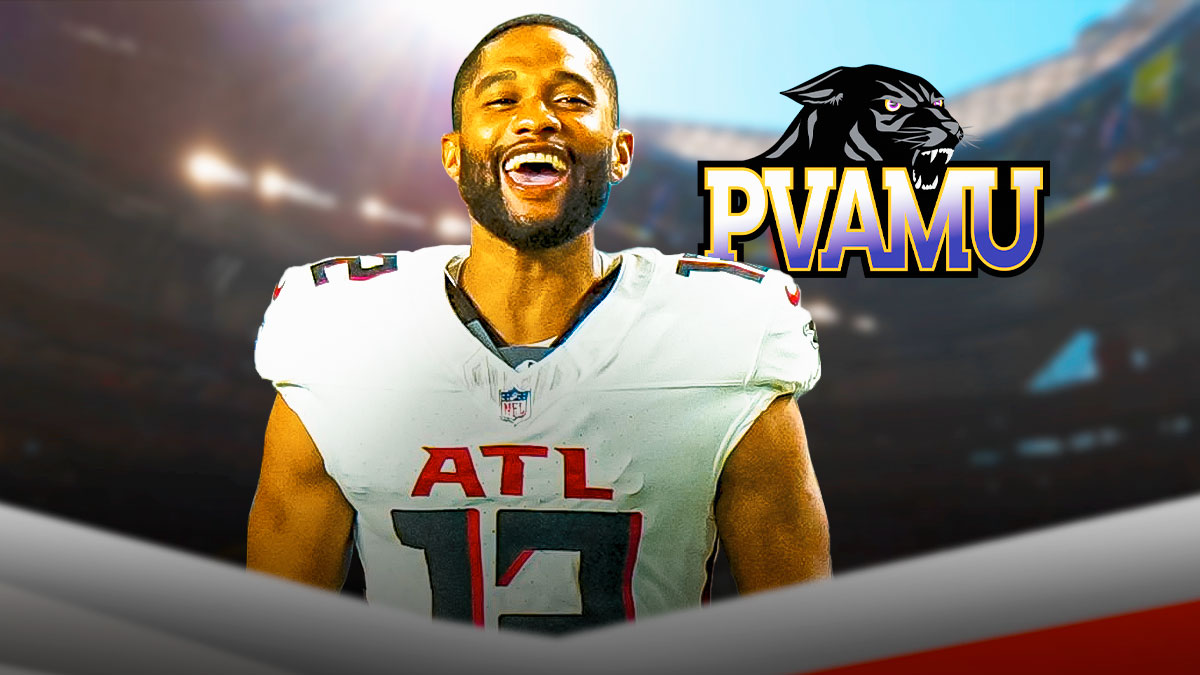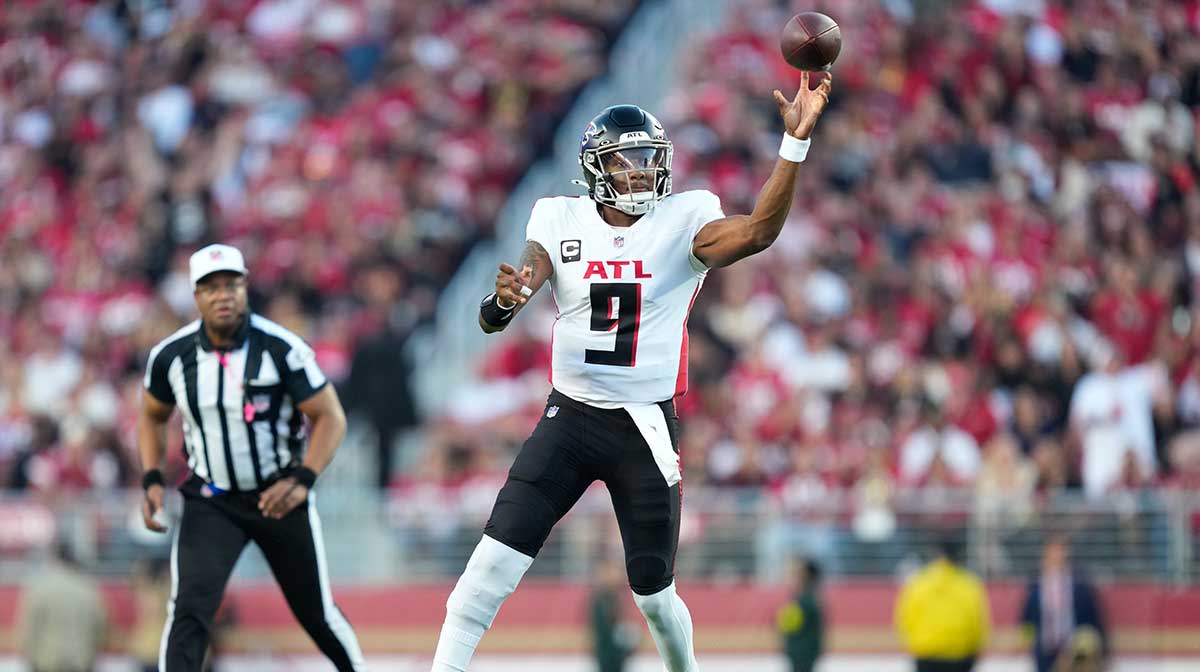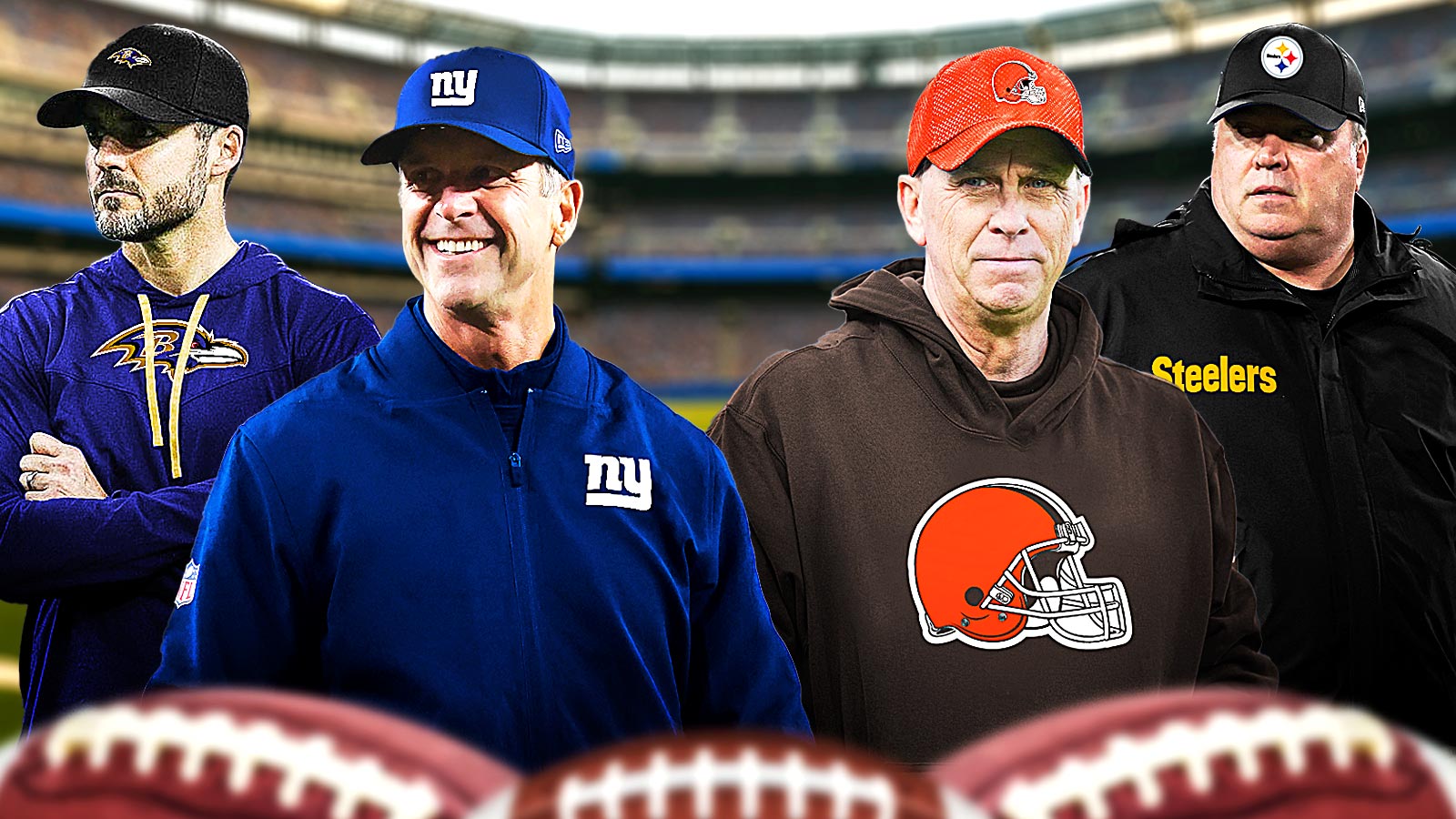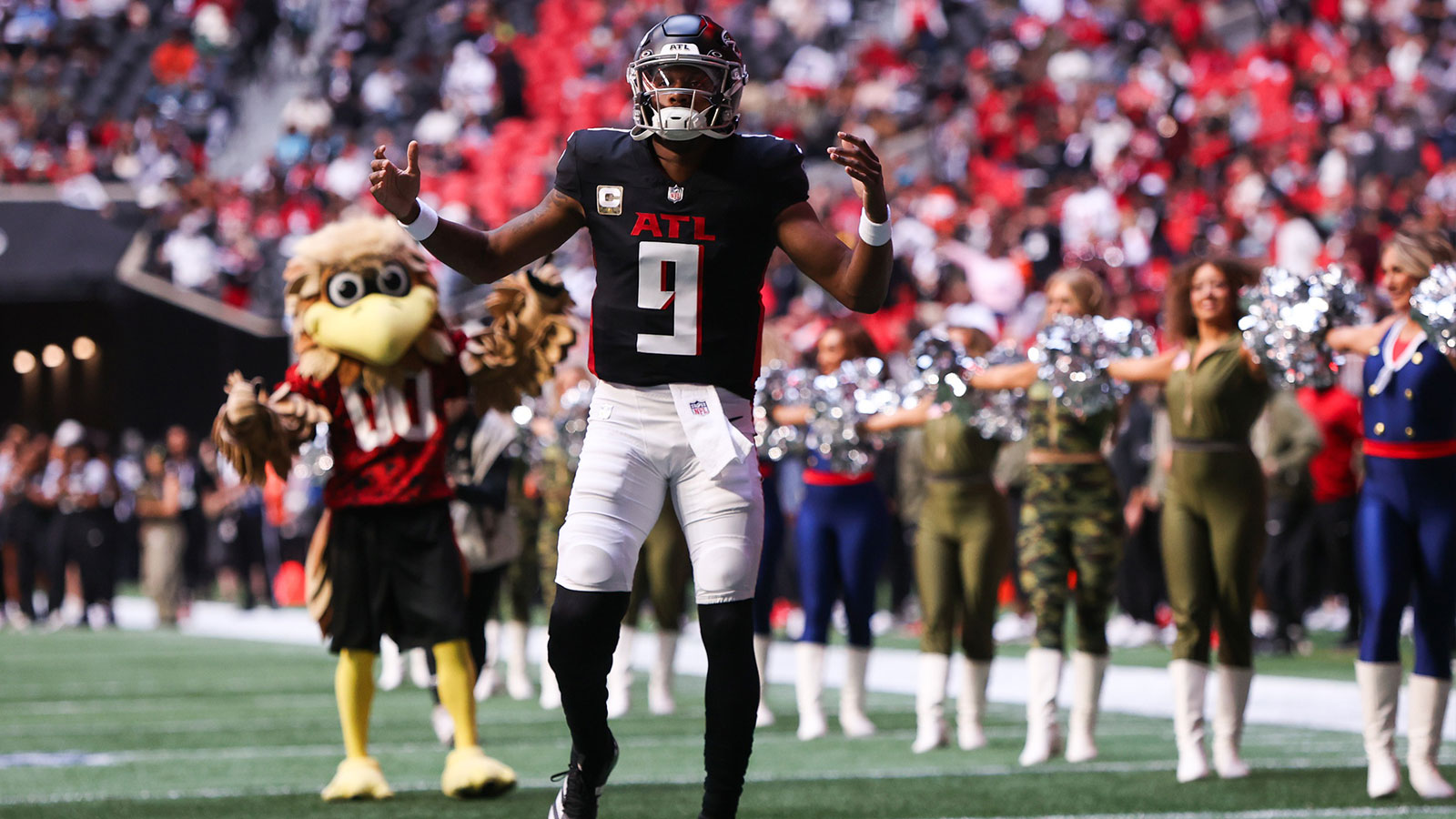The NFC South (New Orleans Saints, Carolina Panthers, Tampa Bay Bucs, and Atlanta Falcons) currently has two Super Bowl contenders, possibly even three. Can the division's 2018 NFL Draft class increase the competition between three playoff teams from last season? Let's rank them from last to first.
4. New Orleans Saints

Round 1 pick 14 – Marcus Davenport, DE, UTSA
Round 3 pick 91 – Tre'Quan Smith, WR, Central Florida
Round 4 pick 127 – Rick Leonard, OT, Florida State
Round 5 pick 164 – Natrell Jamerson, S, Wisconsin
Round 6 pick 189 – Kamrin Moore, CB, Boston College
Round 6 pick 201 – Boston Scott, RB, Louisiana Tech
Round 7 pick 245 – Will Clapp, C, LSU
New Orleans had undoubtedly the best NFL Draft of 2017 as they selected CB Marshon Lattimore, OT Ryan Ramcyzk, FS Marcus Williams, RB Alvin Kamara, and DE Alex Anzalone. There was no way they could match it, but the Saints did not do a very good job in 2018.
The Saints gave up their first-round pick next year in order to move up 13 spots to draft Davenport. At 6-foot-6 and 264 pounds with a 4.58 40-yard dash, Davenport has the physical tools to be a dominant pass-rusher. However, he played at a small school and wasn't required to refine his technique in order to succeed, which resulted in him entering the draft as an incredibly raw player.
Could Davenport become a fantastic complement to Cameron Jordan? Absolutely. But it probably won't happen this year, and that's what makes the decision to trade up for him so puzzling. It was clearly a win-now move, as New Orleans has championship aspirations, but giving up your next first-rounder for a project player isn't a great way to get that done.

An all-time great QB like Drew Brees can never have enough weapons, and Smith will be just another gun in Brees' holster. At 6-foot-2 and 205 pounds with a 4.49 40-yard dash, Smith will be a great downfield threat in the Saints' vertical offense.
It's not like New Orleans needed another running back with Kamara and Mark Ingram on the roster, but Boston Scott could end up becoming a solid depth runner. At 5-foot-7 and 195 pounds, he is built like a bowling ball, but he is also incredibly elusive, forcing 45 missed tackles last season.
The Saints needed to fill in some holes for this season, but instead, they wound up and swung for the fences. Either the move will pay off and they'll hit a grand slam, or it won't and they'll strike out.
Grade: C-
2(t). Carolina Panthers

Round 1 pick 24 – D.J. Moore, WR, Maryland
Round 2 pick 55 – Donte Jackson, CB, LSU
Round 3 pick 85 – Rashaan Gaulden, S, Tennessee
Round 4 pick 101 – Ian Thomas, TE, Indiana
Round 4 pick 136 – Marquis Haynes, DE, Mississippi
Round 5 pick 161 – Jermaine Carter Jr., LB, Maryland
Round 7 pick 234 – Andre Smith, LB, North Carolina
Round 7 pick 242 – Kendrick Norton DE, Miami
Carolina went 11-5 last year and made the playoffs, losing to their rival Saints in the wild card round. Still, they are considered the third team in the division and will continue to be until Cam Newton takes the next step.
Wide receiver has been the Panthers' weakest position group ever since Steve Smith Sr. joined the Baltimore Ravens. Carolina tried to solve that problem this year by drafting Moore out of Maryland. A solid route runner with the physicality to excel on the outside, Moore should make an instant impact and lead the team in catches, yards, and touchdowns aside from tight end Greg Olsen.
Another poor position group has been cornerback. Jackson ran the 40-yard dash in 4.32 seconds and has the potential to develop into a very good man corner.
Carolina's first two picks were solid, but the rest of their draft was underwhelming. It's extremely unlikely that they will be able to catch up to the Saints or even the Falcons.
Grade: C
2(t). Tampa Bay Buccaneers

Round 1 pick 12 – Vita Vea, DT, Washington
Round 2 pick 38 – Ronald Jones II, RB, USC
Round 2 pick 53 – M.J. Stewart, CB, North Carolina
Round 2 pick 63 – Carlton Davis, CB, Auburn
Round 3 pick 94 – Alex Cappa, OG, Humboldt State
Round 4 pick 117 – Jordan Whitehead, SS, Pittsburgh
Round 5 pick 144 – Justin Watson, WR, Pennsylvania
Round 6 pick 202 – Jack Cichy – LB, Wisconsin
After a disappointing 5-11 season, the Buccaneers received some terrible news when Roger Goodell announced that starting quarterback Jameis Winston will be suspended for the first three games of 2018. With no clear direction, it looks like Tampa Bay is headed for another sub-.500 season.
Gerald McCoy is one of the best defensive tackles in the NFL, but Tampa Bay decided they needed another run stopper. Vea has a rare combination of size and athleticism, possessing the potential to be the most dominant interior lineman in recent years.
Unfortunately, he wasn't consistent at Washington, and the Buccaneers' secondary was a much bigger need than DT. Derwin James was sitting right there, but Tampa Bay passed on him. That could be a move that they regret making in a few seasons.

After moving on from Doug Martin, the Bucs needed a new running back, choosing Jones as his succesor. Jones is a solid player, but LSU's Derrius Guice was also available at pick 38. It's still unclear why Guice fell from a possible 15th-20th overall pick to late in the second round, but the teams who chose different running backs over him could regret it later on, Tampa Bay included.
Although they passed on James, the Buccaneers did address their secondary in the second round by taking Stewart and Davis. Davis in particular was an excellent pick, as he has ideal size for a CB in today's league. Evans was also a good selection in the fourth, as he is a very good run stopper.
Tampa Bay's draft was decent, but their missed opportunities early on may come back to haunt them.
Grade: C
1. Atlanta Falcons

Round 1 pick 26 – Calvin Ridley, WR, Alabama
Round 2 pick 58 – Isaiah Oliver, CB, Colorado
Round 3 pick 90 – Deadrin Senat, DT, South Florida
Round 4 pick 126 – Ito Smith, RB, Southern Mississippi
Round 6 pick 194 – Russell Gage, WR, LSU
Round 6 pick 244 – Foyesade Oluokun, LB, Yale
The Falcons have sat atop their division for a while now, but their devastating loss in Super Bowl LI definitely affected them last season. A 10-6 third place performance was disappointing, but Atlanta doubled up the Los Angeles Rams in the wild card round 26-13 before losing a close divisional matchup with the eventual Super Bowl champion Philadelphia Eagles.
Julio Jones is arguably the NFL's best reciever, and his complementary weapons aren't bad either. Mohamed Sanu and Taylor Gabriel each give Matt Ryan something different to throw to, even if they aren't stars. Yet, Ridley is the teammate that Jones needs.
Ridley excels at route running and will be an excellent intermediate threat while Jones takes the top off the defense. Atlanta's offense was already excellent, and now it will be even better.
The Falcons didn't need a cornerback, but Oliver was just too good of a value to pass up at the end of the second round. At 6-foot and 200 pounds with a 4.5 40-yard dash, Oliver is the prototype CB from a physical standpoint. He also has fantastic ball skills and the potential to be the best coverage man in the draft.

Atlanta's biggest weakness is their defensive line, and they moved to address that issue by taking Senat in the third round. He won't be a fantastic player, but he should be a solid rotational tackle.
The Falcons went for quality over quantity, and it should pay off, both this year and in the future.


